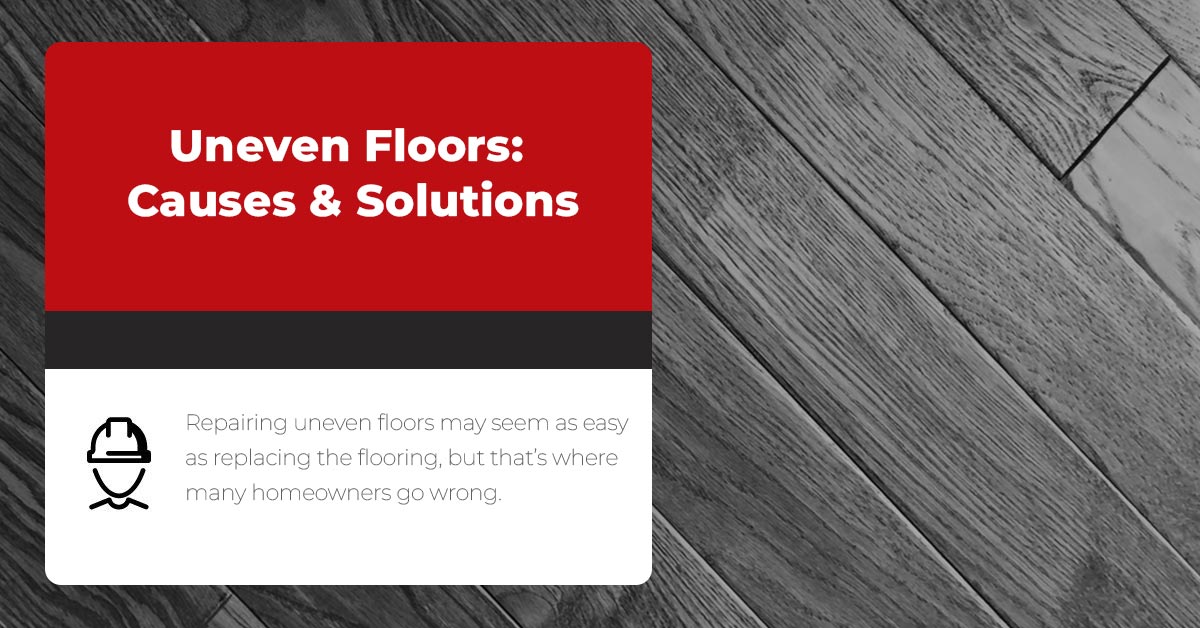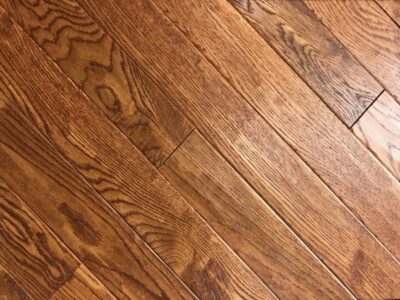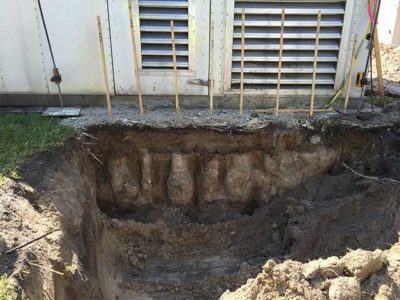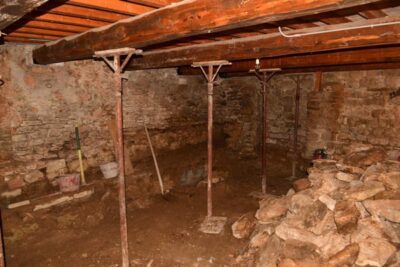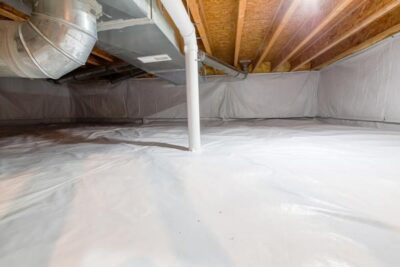Are you spotting uneven floors in your home? If so, this is the article for you. Repairing uneven floors may seem as easy as replacing the flooring, but that’s where many homeowners go wrong. Uneven floors are a symptom of something much larger going on in your foundation. Once you’ve finished this article, you’ll have everything you need before you call your local foundation repair expert.
What Causes Uneven Floors?
Uneven floors are usually caused by moisture buildup, differential settlement, or weak crawl space supports. Since your first floor rests over your foundation, it’s one of the first things affected by any issues. Here are three leading causes of uneven floors.
Moisture
If water seeps into your crawl space or basement foundation, moisture could build up underneath your first floor. If condensation forms on your subfloor, the water can warp the flooring above, especially if you have expensive hardwood floors. Here’s how water can enter your basement or crawl space.
- Over-the-top seepage – This is when water enters your foundation using the space between your basement wall and the first floor.
- Cove joint seepage – This is when water enters using the space between your basement wall and slab.
- Egress windows – Improperly sealed egress windows can leak if water builds up inside the window well.
- Honeycombing (rock pockets) – Water can seep through deteriorating pockets of concrete on your walls and floors.
- Foundation cracks – Water can use any size crack to seep into your foundation.
- Pipe penetration – Water can seep through the gaps around any pipes going through your walls or floors.
Settlement
Your first floor is supported by your foundation, whether it’s a crawl space, basement, or slab. If the foundation begins to settle, the floors above will become unlevel. If your foundation settles faster or deeper than usual (differential settlement), your uneven floors will be more noticeable. Here are a few different causes of differential settlement.
- Poor soil quality – Soil that contains too much clay can expand and shrink based on water saturation. If the soil absorbs too much moisture, it can swell and heave against your foundation. Then, when the soil dries and shrinks, the pressure will release. But, this release can leave more space between the soil particles than before, causing your foundation to settle into the weakened soil.
- Poorly compacted soil – If the soil wasn’t properly compacted before your foundation was built, the soil particles will be too far apart, creating voids.
- Poor drainage – Poor drainage is problematic with expansive soils and soil prone to erosion.
- Earthquakes – Earthquakes and other natural disasters can disrupt the soil below your foundation or your foundation itself.
- Tree roots – Extensive tree roots can destabilize the soil below your foundation by absorbing too much moisture or leaving voids when the root dies.
- Poor design or construction – Improperly built foundations or renovations can lead to differential settlement.
Weak Crawl Space Supports
If your uneven floors are resting over a crawl space, there’s a chance the issue is with the supports and not the foundation. Here’s how those supports can slowly or quickly deteriorate.
- Rot and mold – If moisture sticks to your wooden joists, girder beams, or posts, rot and mold can begin to grow. This will slowly eat away at their stability and ability to hold the floor or other supports above. If your wooden posts touch the dirt floor, groundwater can seep into them and eat away at the bottom.
- Rust – Water and oxygen on steel supports will lead to rust, compromising the support’s ability to hold the weight above.
- Crumbling concrete – The pads or footers that hold your posts can slowly break apart if they absorb too much water or experience excessive ground movement.
Solutions For Uneven Floors
Once a professional identifies the cause of the uneven floors, they’ll choose a solution that solves the actual problem. If you were to replace the uneven floors before you solve the issue below, they could become uneven again in the future.
- Foundation waterproofing to counter moisture – Professionals can install several waterproofing solutions to keep water out if moisture is building up inside your crawl space or basement. This includes a drain tile system to collect excess groundwater, a vapor barrier to prevent moisture from seeping through your walls, and a sump pump to eject the collected water away from your home.
- Underpinning to counter settlement – Professionals can install push or helical piers into the soil if your foundation is settling. These piers will find soil strong enough to support your foundation and lift it until it’s leveled. This is a low-impact repair method, and you don’t need to leave your house while the work is being done.
- Crawl space jacks to counter weak supports – If your crawl space supports are failing, professionals can replace and stabilize them using galvanized steel jacks. These jacks are adjustable, and the movement is gradual, meaning you don’t need to leave your house for this repair process either.
Who Can Help With Uneven Floors Near You?
If you live in the Southeastern United States (including the Virgin Islands) and have uneven floors, call Foundation Professionals Of Florida. Our award-winning team has over 40 years of experience in foundation repair, foundation waterproofing, seawall repair, sinkhole repair, and more. Call the professionals today for your free inspection and quote.

